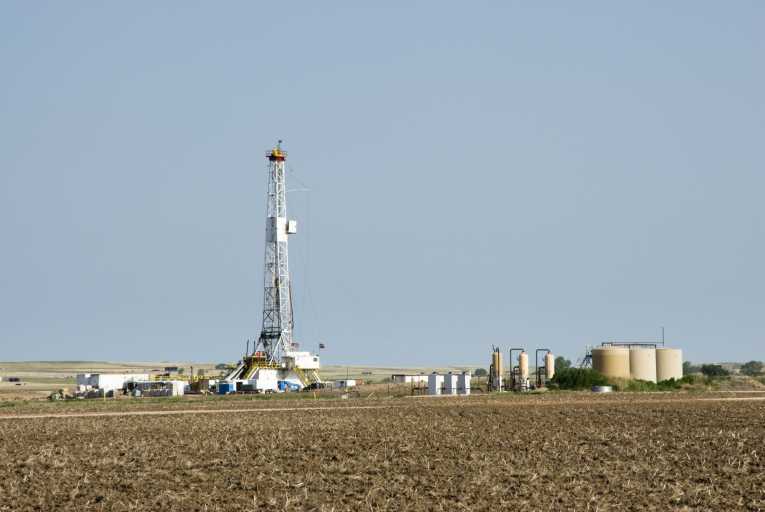After all of the swirling controversy around hydraulic fracturing or 'fracking' for shale gas - an energy frontier enthusiastically opened up by the gas industry in the US - citizens in the UK can rest easy on the matter. A panel of MP's in the country's parliament have looked into fracking in the UK; and the worries surrounding fracking - polluted drinking wells, spills in water course-ways, massive over use of water, greenhouse gas emissions on-par with coal and even earthquakes - are all apparently 'hot air'.
The House of Commons Energy and Climate Change Committee has decided, in a report published yesterday, that the UK is 'shale gas' ready - and has dismissed calls for a moratorium on fracking. But casting an eye back across the Atlantic to the US - where regulators are back-pedaling fast on a loose regulatory approach - suggests that, not for the first time, the UK's politicians are engaged in a first-class exercise in burying their heads in the sand.
Fracking is an old drilling technology, given a new lease of life in the US over the last decade. There, vast reserves of deeply buried shales are having natural gas squeezed out of them with a massive drilling campaign that uses an hydraulic-fracturing technique - or 'fracking'. But whilst the gas companies are merrily pumping water in, and dollars out, numerous instances of pollution and contamination have caused a storm around the fracking boom. That has kicked both state and federal agencies into action.
But none of this seems to have raised the eyebrows of the select committee. It's head, Tim Yeo MP, said ''There has been a lot of hot air recently about the dangers of shale gas drilling, but our inquiry found no evidence to support the main concern - that UK water supplies would be put at risk.'' That seems a generous interpretation of the fact that, due a lax regulatory regime in the US, solid scientific research into the environmental effects of fracking have been completely lacking.
In New York state, where many of the reported pollution incidents have occurred, the governor has now commissioned a report into fracking of the Marcellus Shale formation - and put a moratorium in place, until the results are out. And the EPA is also scrambling to catch up with the facts on the ground. It has started a research program into fracking, that will be published at the end of 2012. So it's not surprising the committee found 'no evidence' - even in the US, the capital of fracking for shale gas, such evidence is still being gathered.
Over and above that, the bigger specter hanging over shale gas is related to its greenhouse gas emissions. Some would have it as a cleaner alternative to coal - but others believe its emissions footprint in fact rivals that of coal.
The very fact that, repeated instances of methane in tap-water have now been scientifically proven to have come from shale gas wells, suggests that methane leakage is a big factor in fracking sites.
With methane a potent greenhouse gas, that does not bode well for its future as part of a 'transitional alternative' to coal, one suggested by the select committee. And even Tim Yeo recognizes that shale gas could be dangerous crutch to lean on, diverting us from the path of a rapid move to a low-carbon economy. He said that if shale gas ''has a downward effect on gas prices it could divert much needed investment away from lower carbon technologies like solar, wind, wave or tidal power.''
Rather than pressing ahead with shale gas exploration, it's time the UK followed the US and France - and paused for thought before opening up another fossil fuel can of worms.
Stock Image Drilling Rig Credit: © Jim Parkin










